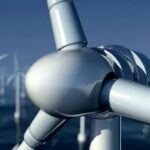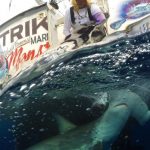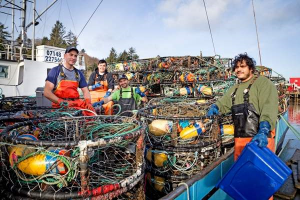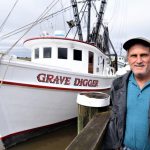Daily Archives: January 26, 2018
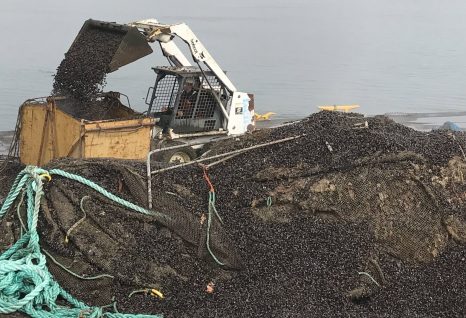
State investigators focus on nets plugged with mussels in Atlantic salmon net-pen failure
Investigators probing the collapse of an Atlantic salmon farm that sent 160,000 invasive fish into the Salish Sea last summer are examining mussels and other sea life coating the nets as cause. Photographs obtained by The Seattle Times under a public records request show portions of the nets at Cooke’s farm were so fouled with kelp, algae and especially mussels that the net was no longer visible.,, Cooke is required under the terms of its lease with the state to maintain its farms in a clean and safe condition. >click here to read< 21:10
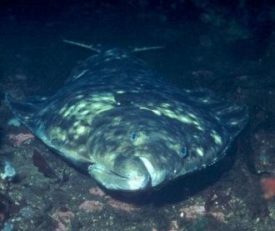
International Pacific Halibut Commission disagrees on catch cuts
Commissioners from the U.S. and Canada this week could not agree on the size of catch reductions that fishing fleets in the two countries should take for halibut along the Pacific coast this year. Commissioners from the two countries signaled their intent to make fishing cuts for the valuable bottom fish but not as large as the cuts suggested by staff earlier this winter. The six-person commission has three members from the U.S. and three from Canada. Their annual meeting was in Portland, Oregon January 22nd-26th. >click here to read< 20:21
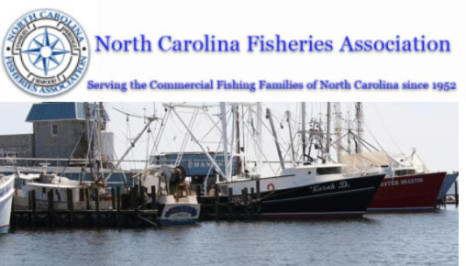
North Carolina Fisheries Association Weekly Update for January 26, 2018
Click here to read the Weekly Update, to read all the updates Click here, for older updates listed as NCFA click here 19:44
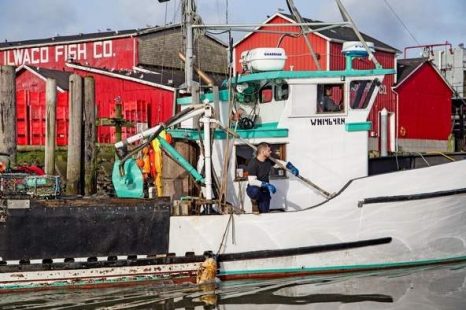
Hardworking crabbers deserve support and encouragement
A look back at several years of news about the Columbia River Dungeness crab industry highlights trends and problems that need a better-coordinated response.,, This season is the second in a row in which independent crab boat owners and operators have attempted, unsuccessfully, to exercise cooperative leverage to win better prices from processors. In both years, weeks of unrelated delays beyond the traditional Dec. 1 start left most crabbers in a weakened position. Plenty of family budgets are built around the assumption that some of the year’s biggest paydays will start refilling bank accounts from December through about February. >click here to read< 17:02
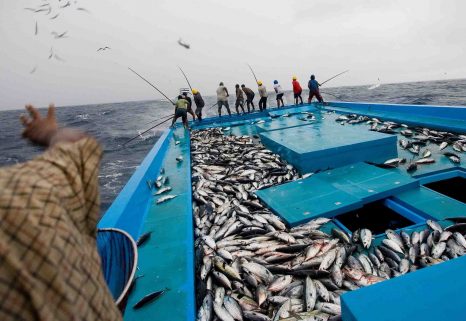
In the Maldives, the Virtues and Limitations of Pole-and-Line Tuna Fishing – can it catch on globally?
Kelsey Miller, fisheries researcher with a global advocacy group, wobbled for balance on a 50-foot fishing boat as silvery tuna flew through the air towards her. It was 2014, and as the vessel pitched off the coast of the Maldives, a collection of atolls several hundred miles southwest of the southern tip of India, a dozen or so fishermen working in the stern pulled the fish from the water one by one with fishing poles, flipping their catch towards the boat’s bow. >click here to read< 16:22 
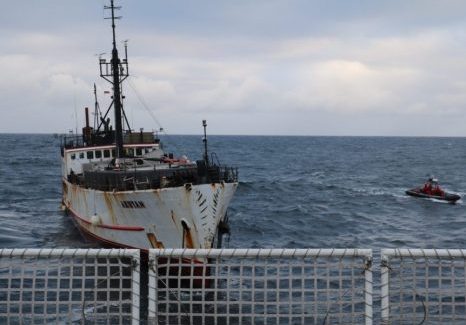
Scuttled! Coast Guard assists Alaska Department of Natural Resources complete response to fishing vessel Akutan
The Coast Guard assisted the Alaska Department of Natural Resources’ response to the disabled and abandoned fishing vessel Akutan near Dutch Harbor, Alaska, Thursday. The crew of the Coast Guard Cutter Alex Haley assisted Alaska DNR by towing the Akutan to a scuttling site approximately three miles outside U.S. territorial seas where Resolve Marine personnel, contracted by the DNR, scuttled the vessel and conducted cleanup operations for debris in the water. >click here to read< 15:24
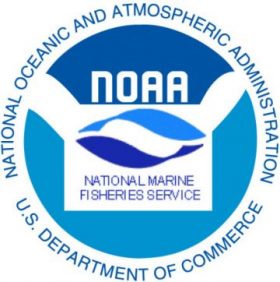
NOAA Announces At-Sea Monitoring 2018 Coverage Levels for Groundfish Sector Fishery
NOAA Fisheries announces that for fishing year 2018 the total target at-sea monitoring coverage level is 15 percent of all groundfish sector trips. This target coverage level is a one percentage point decrease from the 2016 coverage level, which was 16 percent. As the target coverage level is set based on an average of at-sea monitoring data from the past three full groundfish fishing years, this level is set based on data from the 2014-2016 fishing years. >click here to read< 14:45
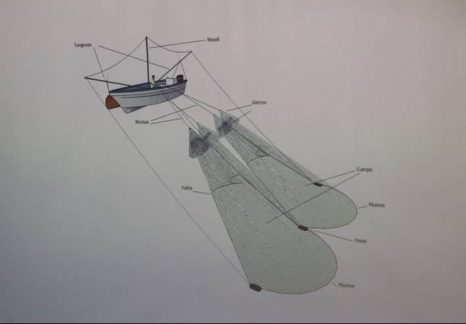
Memorial University flume tank being used for critical conservation work
In the Upper Gulf of California, Mexico, gillnets used in the shrimp fishery have received much of the blame for the plunge in the numbers of a rare marine mammal known as the vaquita.,, One of the key challenges is to encourage Mexican fishermen to change from traditional fishing gear — to get rid of the kilometre-long walls of gillnets in the water that entangle and drown vaquita and other bycatch — and use alternative fishing gear that will be more selective and vaquita-friendly. Such alternative gear is being tested this week in the flume tank of the Centre for Sustainable Aquatic Resources at the Fisheries and Marine Institute of Memorial University in St. John’s. >click here to read< 13:16

New Bedford–based offshore wind farm gets a ‘no’ for state contract
A New Bedford–based offshore wind proposal by Deepwater Wind has been passed over for a state contract in favor of hydroelectric power from Canada. Gov. Charlie Baker’s administration announced Thursday that Northern Pass Hydro, a joint venture of Eversource and Hydro-Québec, has been selected to provide power to Massachusetts in the first of two competitive bidding processes created by the state’s 2016 energy diversity law. >click here to read< 11:43
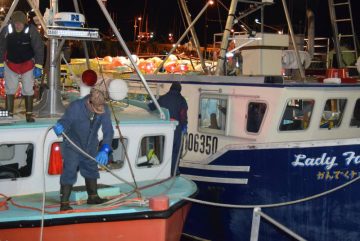
Editorial: Fisheries madness
The federal government seems hell-bent on proceeding with ill-advised amendments to the Fisheries Act that pose particular threat to Atlantic Canadian inshore fishermen and processors. The importance of the fishery cannot be overstated — directly responsible for 80,000 jobs and $6.6 billion in exports — while the indirect economic impact is much greater. Yet Ottawa is hinting at major changes — especially with licence allocation — that could turn the industry upside down. >click here to read< 10:49 
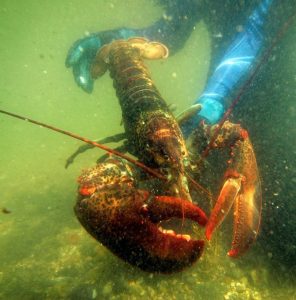
Maine’s lobster population will drop but fishery ‘not doomed’
The lobster population in the Gulf of Maine could decline by nearly two-thirds by 2050, according to a scientific study released this week. As bad as that sounds, scientists and industry representatives say the demise of the most valuable single-species fishery in the country is unlikely. “It doesn’t mean Maine’s lobster fishery is doomed,” said Andrew Pershing, chief scientific officer at Gulf of Maine Research Institute and a co-author of the study. >click here to read< 10:17
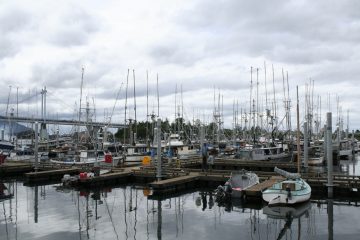
Chinook action plan a ‘question mark’ for conservation and economics
There will be a lot less fishing for king salmon in Southeast in the coming season, after the Alaska Board of Fisheries took dramatic steps to protect dwindling chinook returns to the region’s major river systems. Before wrapping up its 13-day meeting in Sitka on Tuesday, the Board of Fish passed an “action plan” intended to reverse the downward spiral in Alaska’s wild king salmon. The plan targets three primary rivers — or stocks of concern — but leaves the door open for similar conservation measures elsewhere, should they become necessary. >click here to read< 09:29


































